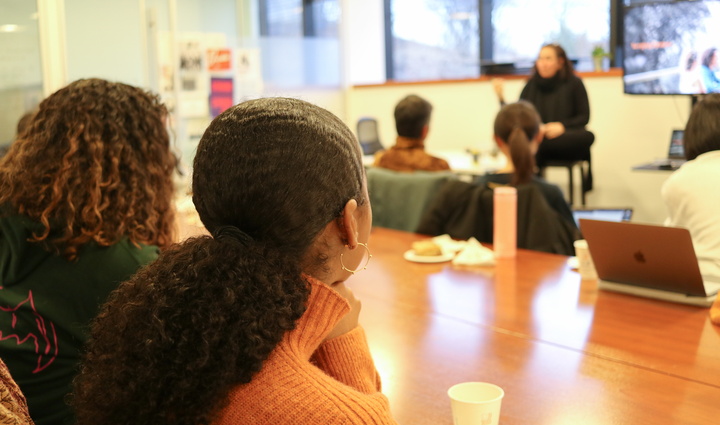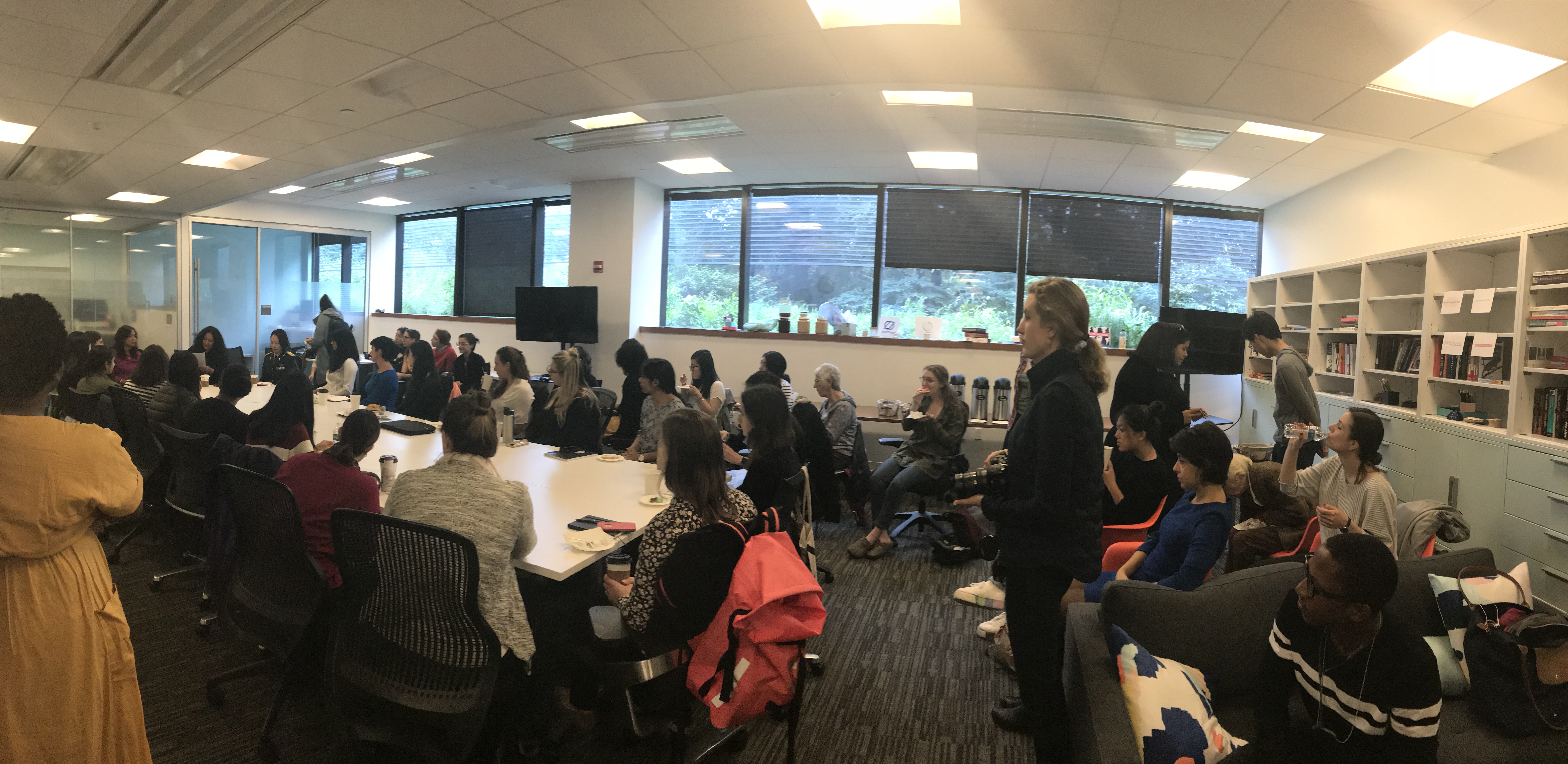A Seat at the Table: Revitalizing the Women Innovators Series at Yale

WE@Yale launched in 2017 when organizers Cassandra Walker-Harvey, former Managing Director at the Tsai Center for Innovative Thinking (Tsai CITY), and Jennifer McFadden, Associate Director of Entrepreneurial Programs at the Yale School of Management (SOM), identified a need for more support and resources for women in entrepreneurship and innovation. The Women Innovators Series, a partnership between Tsai CITY and Yale SOM’s Program on Entrepreneurship, is designed to foster community discussion, idea sharing, and best practices in support of Yale women entrepreneurs and innovators.
Initially created as a series of instructive talks from successful women entrepreneurs like Mahima Chawla, CEO & co-Founder of Cocoon, Crystal Etienne, Founder of Ruby Love, and Lindsay Siegel, Head of Impact for Company Ventures, the WE@Yale Women Innovator Series will be reimagined this fall as We@Yale Community Table. Here, anyone passionate about empowering women and non-binary entrepreneurs can come together to share sustenance and resources, her-stories and hopes, and innovate on ways to create a more equitable landscape for all women.
“Studies show that entrepreneurship and fields typically associated with innovation just aren’t diverse,” shared Abigail Winslow, Director of Operations and Technology at Tsai CITY and one of the organizers of this year’s WE@Yale series.
“If by creating a community of support and resources for women entrepreneurs and innovators, we can boost the number of women succeeding in these fields, we’ll be one step closer to achieving our mission.” —Abigail Winslow, Director of Operations and Technology at Tsai CITY
Before the pandemic, the WE@Yale Women Innovator Series hosted biweekly morning talks from local and national entrepreneurs offering their personal industry insights. The talks were open to the broader New Haven community and forged a group of like-minded peers among community members and students. However, that audience changed during lockdown as video platforms and social distancing mandates impacted participants’ ability to interact freely. WE@Yale individual mentoring programs continued to provide entrepreneurial support for students but failed to recreate a sense of community across various interest groups of women and non-binary entrepreneurs.
Today, the WE@Yale Women Innovator Series seeks to build on the success of prior in-person events like the WE@Yale Breakfast — which was recognized by organizers as the most successful event in the series last year — to promote diverse knowledge-sharing through informal gatherings where people interested in entrepreneurship and innovation can come together for meaningful discussion.

This year, participants of the WE@Yale Women Innovator Series can expect a wholly new format intended to build community and networking opportunities for women and non-binary innovators. Moving away from the traditional speaker format, the upcoming WE@Yale Community Table events will allow students, mentors, community members, and alumni to meet as equals around the table and share in the successes and setbacks of women and non-binary entrepreneurs in their field. The shift from speaker events to community discussion is intended to refocus the WE@Yale Women Innovator Series towards identifiable learning outcomes that participants can use to enact change through their entrepreneurial endeavors. Community members of all genders are welcome to attend these talks, which are free and open to the public.
“I hope participants walk away with at least one actionable step forward that they can take on their entrepreneurial or innovative journey. I also hope they are inspired to overcome some of the obstacles that are unique to women. And lastly, I hope they walk away having made a meaningful connection, whether that’s connecting them with resources or a supportive member of the community.” –Abigail Winslow